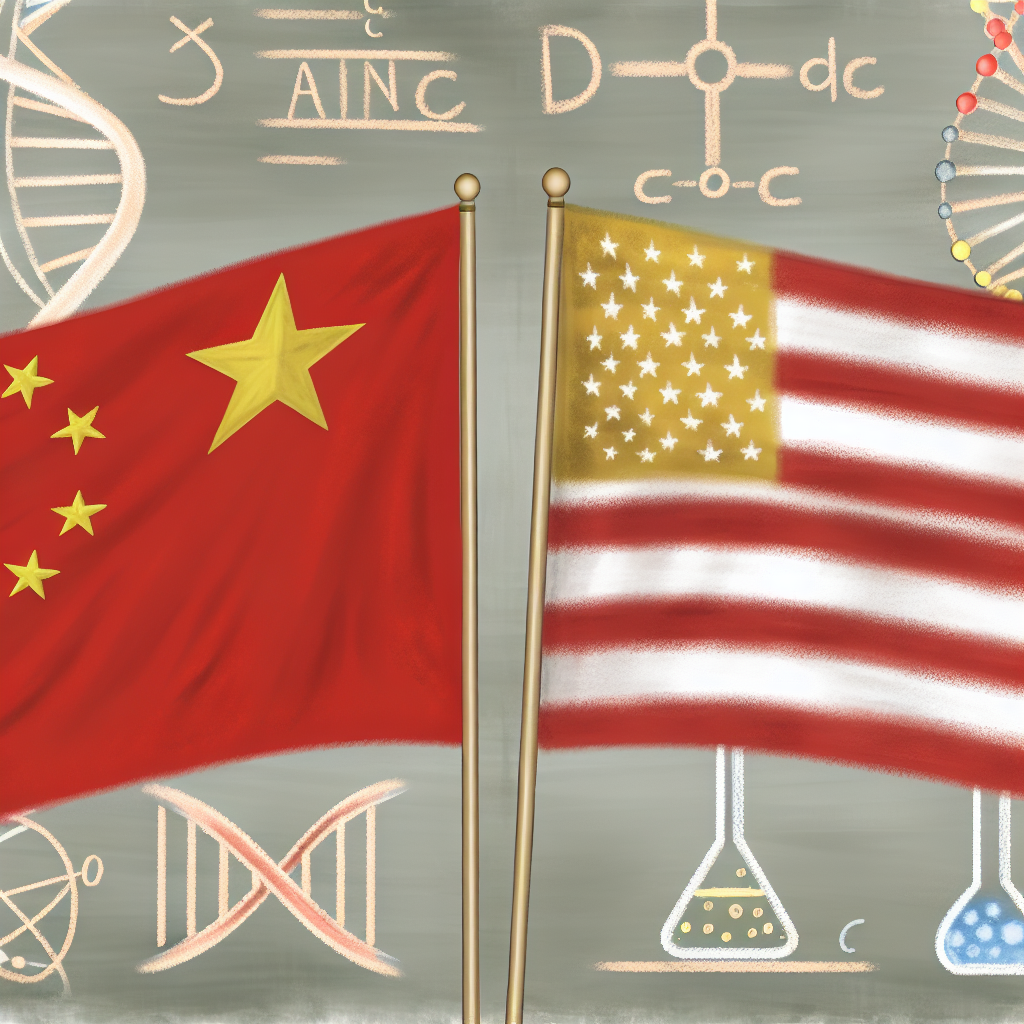Activities
Divisions
Programs
Activities
Divisions
Programs
US Congressional Committee on Foreign Affairs approves legislation to inspect US-China scientific agreement, relationships expected to deteriorate
Even amidst the current technological conflict between US and China, there were some projects where the two nations could collaborate, owing to scientific and technological pacts between them. Nevertheless, with the current high level of strain, the road ahead might not be as straightforward.
On Thursday, the US House Foreign Affairs Committee collectively passed a bill. This legislation seeks to enhance the Congress's supervision of any future interactions of the State Department concerning scientific and technological contracts with China.
The bill, brought forward by Kentucky's Republican Representative Andy Barr, requires the Secretary of State to provide Congress with comprehensive details about potential agreements, including their advantages and disadvantages, before they are pursued.
Should this be implemented, the government would have to delay any further action on these deals for a minimum of 30 days after submission. This would provide Congress with the time to assess potential threats to national security and issues related to human rights.
The unanimous endorsement of the bill by the committee, through a 50-0 vote, paves the way for additional legislative steps. Nevertheless, a definitive date for a vote in the House of Representatives is still undecided, and the same applies for the Senate.
The legislation could potentially hinder the regular renewal of the Science and Technology Agreement (STA) between the US and China. This agreement was first established in 1979, marking the first bilateral pact between these two nations, signed by US President Jimmy Carter and Chinese Premier Deng Xiaoping. Usually, the STA is renewed every five years, but it has received several six-month extensions, including one in the previous August and another in February.
The existing pact has allowed scientists from the US and China to enjoy monetary, legislative, and governmental backing for several years, promoting cooperative scientific efforts. Supporters contend that the STA safeguards US researchers in China and streamlines research in the US by granting access to crucial Chinese databases, especially in areas such as health studies.
Nonetheless, detractors contend that China's supervision and governance of science and technology initiatives within its territories have enabled it to manipulate the STA, filling scientific voids and capitalizing on the unorganized US academic scene to gain supremacy in areas like electric vehicles and renewable energy.
Advocates for the legislation underscore the necessity to analyze potential hazards and determine the influence of the STA on U.S. innovation. Wisconsin's Republican Representative Mike Gallagher, who presides over the House Select Committee on the Chinese Communist Party, stressed China's abuse of the United States' scientific transparency to pilfer research and push their own objectives, such as military growth.
The cross-party legislation also focuses on the leadership of the Chinese Communist Party, suggesting penalties against all 205 members of its Central Committee and their grown-up family members. The bill, backed by Lisa McClain, a Michigan Republican representative, was passed with a 28-22 vote. The legislation allows the president the ability to suspend the penalties if Beijing shows progress in different areas, like how they handle Uygur Muslims and their dealings with Taiwan and Hong Kong.
Advocates see the law as essential in promoting responsible actions by the Chinese Communist Party, but opponents such as New York Representative Gregory Meeks, the top Democrat on the committee, believe that these wide-ranging sanctions may harm US-China relations and could prevent US officials and businesses from liaising with their Chinese counterparts to further US priorities.
Search for us on YouTube
Top Programmes
Associated News
Fracas at the US-Mexico border: Immigrants, protesting against the new Texan immigration legislation, breach barbed wires and confront border patrol
Apple’s CEO Tim Cook states that China plays an ‘essential’ role in their business and promises to increase investment
China and Russia negotiate an agreement with Houthis for the safety of ships in the Red Sea
Medical Achievement: The first-ever transplant of a genetically-altered pig kidney to a living patient
Fracas at the US-Mexico border: Immigrants, protesting against the new Texan immigration legislation, breach barbed wires and confront border patrol
Apple’s CEO Tim Cook states that China plays an ‘essential’ role in their business and promises to increase investment
China and Russia negotiate an agreement with Houthis for the safety of ships in the Red Sea
Medical Achievement: The first-ever transplant of a genetically-altered pig kidney to a living patient
can be found on YouTube.
Firstpost retains all rights as of 2024.

























+ There are no comments
Add yours